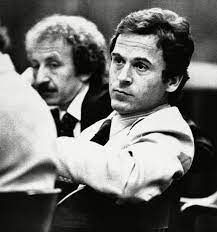Media presents romanticized portrayal of serial killers
January 6, 2023
In 2021, Netflix released a documentary called “Night Stalker” which follows the story of Richard Ramirez and his collection of murders throughout the Los Angeles and later San Francisco areas. The documentary grabbed lots of attention from viewers that manifested into the form of a fan club.

Ramirez began receiving fan mail while in prison and women began showing up to his hearings and pouring out their devotion to him. It was completely overlooked that his crimes included random murder, torture, robbery, sexual assault molestation of children. It seemed that because the man was physically appealing, audiences inherently believed he was unable to commit such heinous acts against others. The documentary didn’t help by casting an attractive male lead to play the part. It just led to the idolization of Ramirez’s misconduct and satanism.
Even across social media after “Night Stalker” was released, Ramirez continued to be glorified and sexualized through video montages made on TikTok and fan pages made on Instagram under his name. This continued to push the narrative that because a person is physically attractive they must have good moral intentions.
A similar story to this occurred during the trial of Ted Bundy. It was reported that the offender received fan mail and professions of love from fans following his trial. It was completely disregarded that his offenses fell under kidnapping, sexual assault, rape and murder. Yet even with this knowledge fans would show up to the hearings dressed as how he preferred his victims.
This trend of romanticization is taken further by applauding male actors for portraying themselves as violent and mysterious. This was seen in the 2019 Netflix film starring Zac Efron, “Extremely Wicked, Shockingly Evil and Vile” which glorified the story of Ted Bundy, a man who confirmed that his number of kills went into triple digits. The choice to cast Zac Efron, the main teen sex symbol in the 2000s, as Ted Bundy only led to the audience sexualizing him instead of recognizing how monstrous he was.
The film failed to show Ted Bundy’s story in a negative light. The lack of violent and offensive scenes paired with Zac Efron’s face made it hard to imagine a relation between the character and his atrocious crimes. This only further supported the backwards thought process of attractiveness equals innocence.
This sickening response from audiences watching these films should be more than enough evidence that there needs to be a shift in how serial killers are portrayed in film. If society continues to characterize violence as socially acceptable then that violence will become very real to many people in private.


